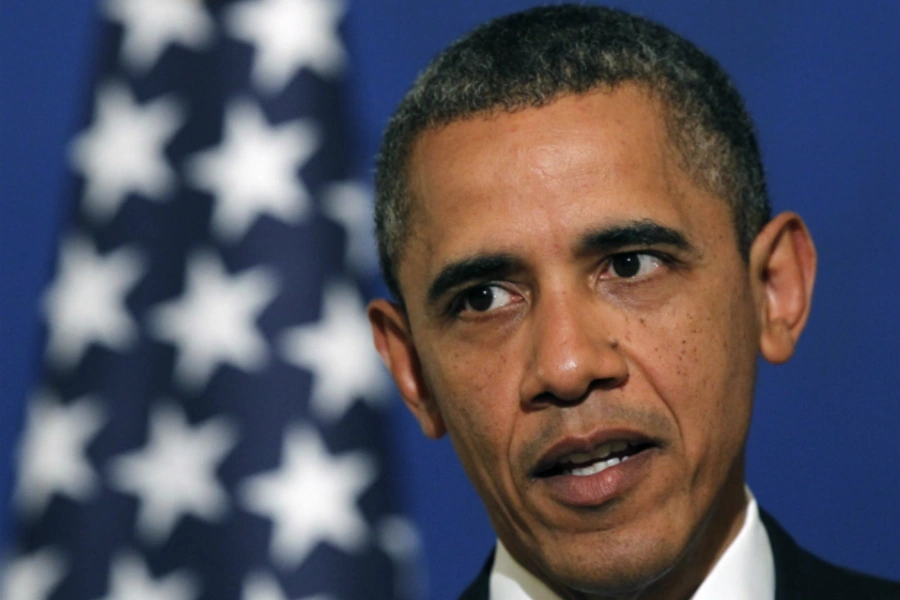More on:
Mr. President, your first administration played “small ball” with North Korea. The policy of “strategic patience” succeeded in weathering North Korean provocations and limited exposure to the political risks that would have accompanied a high profile effort to address North Korea’s nuclear development. However, the crime and punishment approach to North Korea’s 2009 satellite launch and nuclear test through UN Security Council sanctions, statements, and resolutions has failed to stop North Korea’s growing nuclear and long-range delivery capabilities.
Your secretary of defense warned that North Korea is developing a missile capability that would eventually be able to reach the United States and has acquired road-mobile transportation vehicles that make such missiles easier to hide and harder to take out. Several rounds of low-key dialogue in 2011 and 2012 resulted in the ill-fated Leap Day agreement that again failed to restrain North Korean long-range rocket launches; UN condemnation and sanctions appear to have only fueled North Korean defiance. North Korea has responded to the latest UN resolution with threats to conduct further satellites, long-range rockets, and “a nuclear test of higher level.” If North Korea conducts a third nuclear test, more sanctions and more resolutions seem inevitable, but will likely be equally feckless in restraining North Korea from its current course. Given steady North Korean progress in developing its missile and nuclear programs, your administration should pursue a more active strategy designed to shape North Korea’s environment. This approach should include the following steps:
1) Redouble efforts to cut off North Korea’s remaining potential nuclear customers
You presided over a shrinking North Korean customer base during your first term as a result of political transitions in Libya and Myanmar. But North Korea forged an MOU with Iran last year on scientific and technical cooperation and the two countries continue to exchange technical personnel. Your administration should make it a priority to cut this link through stricter implementation of UN Security Council resolutions and enhanced intervention to thwart North Korean-Iranian cooperation.
2) Forge a unified policy approach with South Korea
Your first administration saw unprecedented policy coordination with South Korea led by your close personal relationship with outgoing South Korean president Lee Myung-bak. It will be necessary for you to develop an equally close relationship with his successor Park Geun-hye to forge a unified policy approach that embeds denuclearization into a broader diplomatic and political effort designed to foster North Korea’s peaceful integration into the region. This will mean active U.S. support for South Korean efforts to build practical cooperation with Russia and China on North Korea-related transport and energy projects.
3) Together with South Korea, discuss peninsular geostrategy, and not just denuclearization, with China
First term efforts to forge cooperation with China on North Korea foundered in part because the United States and China were talking past each other on North Korea. China’s focus on peninsular stability was a function of a geostrategic view of the peninsula as a zero-sum competition for influence between China and the United States, while Washington talked denuclearization without sufficient attention to China’s geostrategic concerns. President-elect Park Geun-hye has stressed the importance of strong Sino-U.S. cooperation, wants to stabilize inter-Korean relations, and has advocated establishing a China-U.S.-ROK dialogue. Embracing this approach would provide an improved basis for forging trilateral cooperation measures designed to help North Korea, rather than allowing divisions for North Korea to exploit.
4) Encourage More North Koreans to Experience Reality Outside the Country
North Korea’s publicly stated terms for negotiation of a new relationship with the United States are unrealistic. Denuclearization will remain an essential precondition for normalization of U.S.-DPRK relations. But this does not mean that North Koreans should be blocked from participating in non-governmental cultural and educational exchanges in the United States or with other countries. In fact, the United States should facilitate opportunities for such exchange with the hope that North Korean educational experiences will sow the seeds of North Korea’s transformation and build confidence between the two peoples. It also means continued advocacy for international measures to hold North Korea to account for its atrocious human rights record, which fails to meet minimally acceptable international standards. Ultimately, the impetus for breaking the impasse in U.S.-DPRK relations and achieving North Korea’s regional integration will likely come not from governments, but from the North Korean people themselves.
More on:
 Online Store
Online Store
